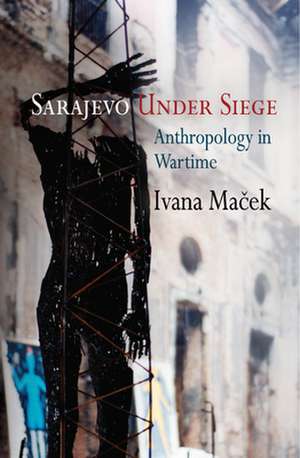Sarajevo Under Siege: Ethnography of Political Violence (Hardcover)
Autor Ivana Maceken Limba Engleză Hardback – 31 oct 2008
Preț: 432.63 lei
Nou
Puncte Express: 649
Preț estimativ în valută:
82.86€ • 85.37$ • 69.41£
82.86€ • 85.37$ • 69.41£
Carte tipărită la comandă
Livrare economică 21-27 februarie
Preluare comenzi: 021 569.72.76
Specificații
ISBN-13: 9780812241266
ISBN-10: 0812241266
Pagini: 256
Dimensiuni: 155 x 231 x 25 mm
Greutate: 0.6 kg
Editura: University of Pennsylvania Press
Seria Ethnography of Political Violence (Hardcover)
ISBN-10: 0812241266
Pagini: 256
Dimensiuni: 155 x 231 x 25 mm
Greutate: 0.6 kg
Editura: University of Pennsylvania Press
Seria Ethnography of Political Violence (Hardcover)
Recenzii
"Original, important, and exciting. Most ethnographies of war aren't actually conducted at the epicenters of war, nor even on the front lines. Macek's is. She stands among a handful of scholars who combine true ethnography of war with enduring commitment to both academic and personal ethics."-Carolyn Nordstrom, University of Notre Dame "Macek succeeds in her aim of offering an anthropological perspective on war, telling the stories of Sarajevans during the siege with clarity, empathy, and intellectual integrity... Macek's study represents a valuable contribution to the study of war in general and the conflicts in the former Yugoslavia in particular."-Slavic Review
